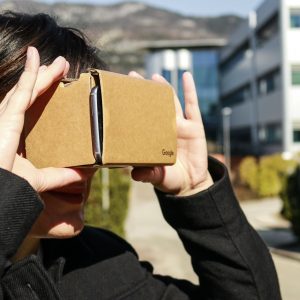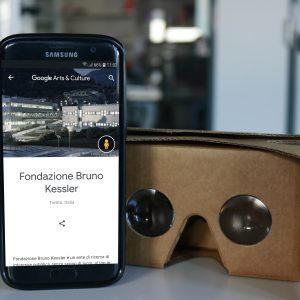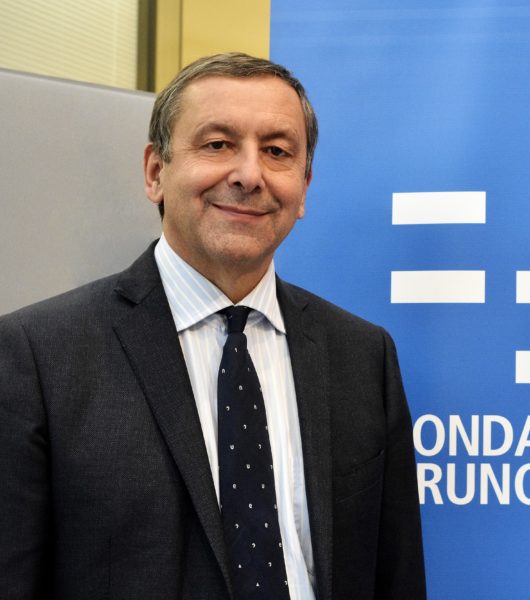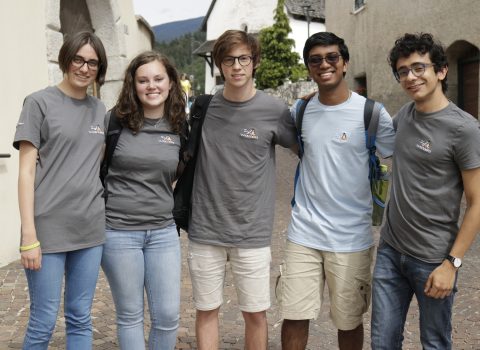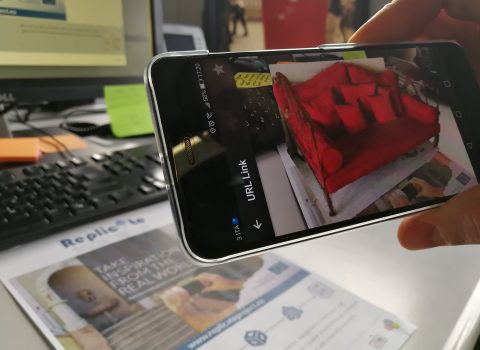Once upon a try
Explore the greatest inventions and discoveries of humankind thanks to the new Google Arts & Culture interactive online project in collaboration with Fondazione Bruno Kessler
Wednesday, March 6, 2019, at 11 a.m., Google Arts & Culture launched “Once upon a try“, the largest online exhibition on inventions and discoveries ever.
The collections, stories and knowledge of over 110 institutions in 23 countries, including Fondazione Bruno Kessler, have been brought together to reveal millennia of discoveries and the great minds behind them.
Anyone can explore more than 400 interactive exhibits that pay homage to the greatest advances of humanity in science and technology, to the dreamers who shaped today’s world, but also to stories of total failures and accidents that have turned out to be a real stroke of luck. “Everything starts from an idea” also allows visitors to tour, thanks to Google Street View, the sites of the great discoveries, from the deep underground spaces inside CERN’s Large Hadron Collider to the sky aboard the International Space Station. Visitors can see over 200,000 high-definition works up close, including the first map of the Americas we know about, dating back to 1508, and the letters by Albert Einstein, published online for the first time.
Fondazione Bruno Kessler contributes with exhibits that narrate various research experiences developed in the institute over the years. Among these, visitors can find, for instance, the challenges of “WebValley“, the international summer camp in Data Science for students under 18 years old, a unique interdisciplinary research experience, as well as a journey into space, which will make FBK’s contribution to the Chinese CSES/LIMADOU space mission known. And those who do not have the chance to visit the Foundation’s science and technology hub located at Povo (TN), can now stroll our laboratories and take a virtual tour of the clean room, usually restricted to the public, thanks to the Google Arts & Culture’s Street View technology. Our clean room produces X-ray detectors that are launched into orbit and are part of space modules, the sensors used in colorimeters to assess diamond purity and many other highly precise devices that accompany us day in and day out.
Google Arts & Culture also invites visitors to join Tilda Swinton and the CERN physicists who study particles to witness the birth and evolution of the universe with the aid of augmented reality. The 127,000 images from the NASA archive with a new narrative tool built with Google’s Machine Learning technologies can also be explored.
“With the technologies made available by the collaboration with Google Art & Culture – says Francesco Profumo, President of Fondazione Bruno Kessler – we can have virtual visitors tour the laboratories where FBK researchers in the “hard sciences” and those in the “social sciences” (i.e. religious, social and economic studies) conduct their studies and develop their prototypes increaingly often working in the same spaces side by side. It is precisely here in Trento, at FBK, that integrated excellence in science and the humanities starts, as provided by our Strategic Plan (2018-2027), which focuses on artificial intelligence in holistic terms and which sets out that not only scientific value and possibly the economic impact should be assessed, but also the social impact with machine learning and deep learning techniques. The exhibition routes hosted on the Google Arts & Culture platform are an excellent opportunity to share the creative atmosphere of doing research in everyday life, so that those observing from outside the Foundation will be aware of our commitment to “building the future” and of our results. Virtual visitors will have the chance to follow FBK researchers and the projects they are engaged in, collect the ideas presented to establish new relationships and stimulate future projects, become “friends”; these new relationships will be very important for FBK because we will be able to open ourselves to the world, strengthening the ties with the local area that sustains us (Trentino), but also with Italy and Europe and establishing new relationships with researchers, institutions and companies attentive to our modus operandi on a global scale.”
“We invite everyone to participate in the debut of a new project – said Amit Sood, director of Google Arts & Culture – which celebrates innovation and science. Through the stimulating and sometimes surprising stories of over 100 partners, it is possible to explore the inventions and discoveries that have shaped our world. “Everything starts from an idea” is an exhibition that highlights that first attempt, that idea, that journey that allows the realization of a dream, and we hope that it will push people to reach their eureka moment.”
Explore for free “Once upon a try” on Google Arts & Culture or via the iOS or Android apps and share your impressions at #tuttoiniziadaunidea.
About Google Arts & Culture
Google Arts & Culture puts more than 1,800 museums at your fingertips. It’s an engaging way to explore the arts, history and wonders of the world, from Van Gogh’s bedroom paintings to the women’s rights movement or the Taj Mahal. The working team is a partner for innovation in cultural institutions since 2011. Working on technologies that help preserve and share culture, allowing curators to create engaging online and offline exhibits within museums. Information on the latest projects are available on the Google Keyword official blog.
